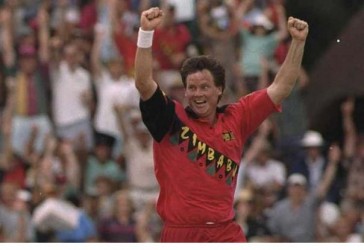(ICC) The ICC Cricket World Cup Qualifier New Zealand 2014 (CWCQ) will see teams from around the globe compete for the remaining two qualification spots at the ICC Cricket World Cup 2015 (CWC), to be played in Australia and New Zealand.

The New Zealand tournament will be the 10th edition of the event, and stars of previous editions have recalled the unforgettable moments and unique challenges of the tournament over the years.
Looking back at the early days of the competition, which was known as the ICC Trophy until 2009, the captain of the Sri Lanka team that won the inaugural edition (1979), Anura Tennekoon, said: “In those days, the role of the captain was much more important on the field.
“Nowadays, the ICC televises most of its competitions, but in those days, we had no video footage of any of our opponents. So you couldn’t plan any particular strategies against any particular player in advance. The captain had to be able to think on his feet and improvise constantly. Today, you can plan by analysing batting stances and bowling styles quite easily”.
Tennekoon, who led Sri Lanka in two ICC Cricket World Cups (1975 and 1979), added that the tournament presented unique challenges: “A major factor for all sides in the ICC Trophy those days was playing on club wickets and turf tracks.
“These were not prepared as well as the tracks for the ICC Cricket World Cups, so I actually found it harder to post big scores in the ICC Trophy. In fact, our whole team often discussed the prospect of being upset by a supposedly weaker side, since the pitches would many times level out differences in player skills.”
Eddo Brandes, who was the highest wicket-taker for Zimbabwe in the ICC Trophy 1990 with 18 wickets from eight matches, feels there was added pressure on every team’s top performers.
“It was important for the team’s best players to perform at the critical times and in pressure situations. That often proved to be the difference between two sides in the ICC Trophy those days.
“The other remarkable thing for the senior professionals, captain, vice-captain and the exceptional players in the ICC Trophy teams of that era was that they actually needed to spend a lot of their time and energy passing on their knowledge to youngsters or emerging players like me, since we had no coaches or support staff like you do nowadays,” said Brandes, who also featured in four ICC Cricket World Cups (1987, 1992, 1996 and 1999).
Succeeding in the ICC Trophy changed the lives of many players who lifted the trophy. Aminul Islam, who scored two half-centuries for Bangladesh and also top-scored for the side with 37 in the final of the 1997 edition against Kenya in Kuala Lumpur, said: “The 1997 tournament changed our cricket.
“Once the euphoria had subsided, support from the government and private sector, endorsements et cetera started pouring in. The media coverage also created a nation-wide excitement about cricket.”
Islam, who is one of Bangladesh’s most celebrated cricketers, and who, apart from leading Bangladesh in the ICC CWC 1999, also became the country’s first centurion in its Test debut, added: “Kids who would be kicking footballs not so long ago were out playing cricket at every corner of the country. Soon the game had dethroned football as the main sport. We, the players and the organisers started to dream big and Test status followed. What we have today is all because of that ICC Trophy triumph.”
For a tournament with such a rich history, it comes as no surprise that many players feel that the number of nail-biting matches they’ve played is what sticks out in their memories.
Speaking about the Netherlands’ dramatic chase of 196 in the ICC Trophy 2001 final in Toronto, Canada, Klaas-Jan van Noortwijk, who scored a half-century in that match, said: “The atmosphere in the Holland tent was pretty down, because Namibia kept the pressure on us by bowling well and our best batsmen were out.








